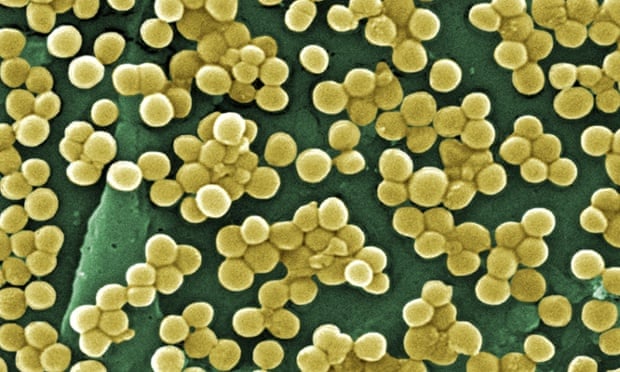 Scientists have discovered a new class of antibiotic using a revolutionary procedure hailed as a game changer in the hunt for medicines to fight drug-resistant infections. The antibiotic, called teixobactin, kills a wide range of drug-resistant bacteria, including MRSA and bugs that cause TB and a host of other life-threatening infections.
Scientists have discovered a new class of antibiotic using a revolutionary procedure hailed as a game changer in the hunt for medicines to fight drug-resistant infections. The antibiotic, called teixobactin, kills a wide range of drug-resistant bacteria, including MRSA and bugs that cause TB and a host of other life-threatening infections.
It could become a powerful weapon in the battle against antimicrobial resistance, because it kills microbes by blocking their capacity to build their cell walls, making it extremely difficult for bacteria to evolve resistance.
“Teixobactin kills exceptionally well. It has the ability to rapidly clear infections,” said research leader Kim Lewis, director of the Antimicrobial Discovery Center at Northeastern University in Boston, US.
The public health threat of resistance was highlighted last year in a World Health Organisation report that warned the world was entering a “post-antibiotic era”. The UK’s chief medical officer, Sally Davies, has put antibiotic resistance on the government’s national risk register, alongside terrorist attacks and pandemic flu, and warned that without new antibiotics, more people will die after routine operations in the next 20 years. In December, a report commissioned by David Cameron warned that failure to tackle drug-resistant infections will cost the global economy up to £64tn ($100tn) by 2050.





 A group of 14 law firms representing nearly 20,000 plaintiffs is seeking to intervene in Bayer’s...
A group of 14 law firms representing nearly 20,000 plaintiffs is seeking to intervene in Bayer’s... As marijuana use among teens has grown in the past decade, researchers have been trying to...
As marijuana use among teens has grown in the past decade, researchers have been trying to... The Food and Drug Administration Monday unveiled the details of a new policy designed to make...
The Food and Drug Administration Monday unveiled the details of a new policy designed to make...






























